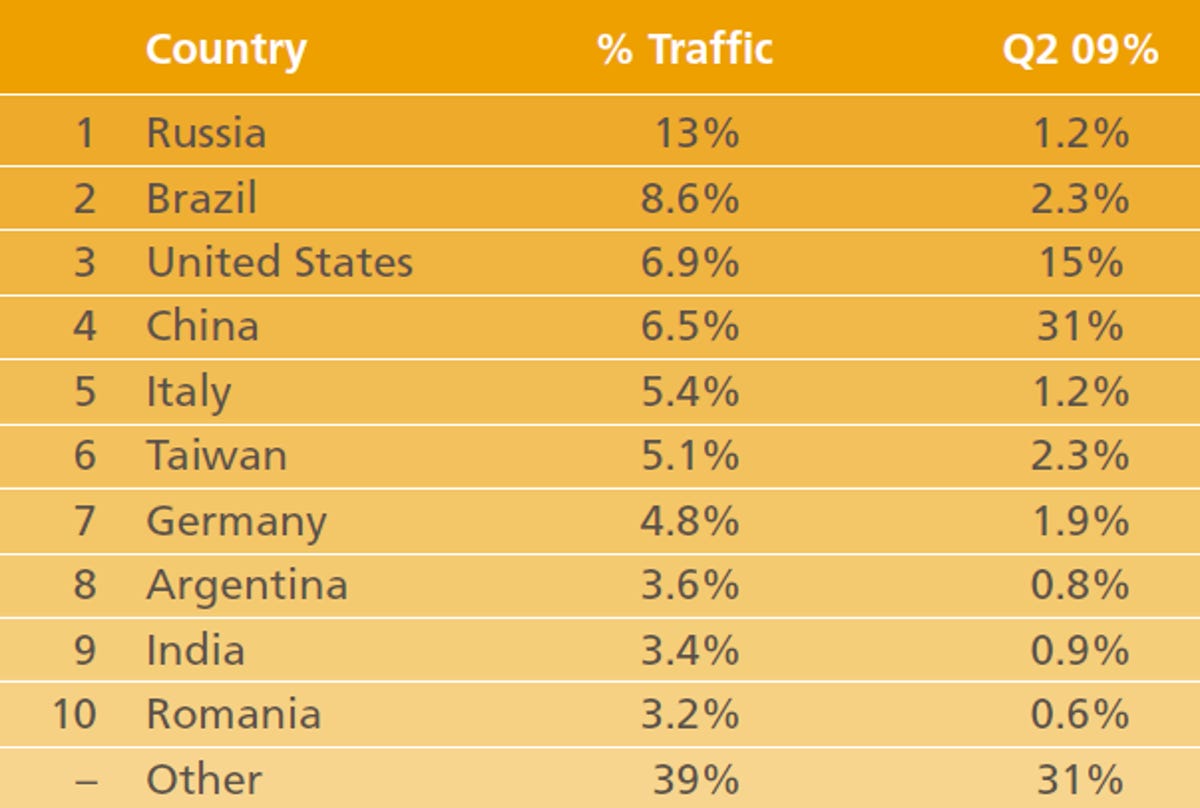More cities and countries are enjoying faster Internet speeds, according to the latest State of the Internet report released Wednesday by Akamai.
Looking at the third quarter of 2009, the report found that most countries in the top-10 list for Internet performance saw an average 18 percent increase in speed from the second quarter. South Korea topped the list, with a 29 percent jump in speed to 14.6 megabits per second, while Ireland came in second for most improved, with a 26 percent rise to 5.3Mbps.
The United States failed to make the top-10 list again, coming in 18th, with a 1.8 percent increase to reach an average connection speed of 3.9Mbps. But some countries, such as Romania, Sweden, and the Czech Republic, saw their speeds drop in the third quarter from the second quarter.

Akamai
On a year-to-year basis, however, all the countries in the top 10 saw a boost in speed, with Ireland topping the list, with a 73 percent gain, followed by the Czech Republic, with a 23 percent improvement. On the same yearly basis, though, the United States was hit by a 2.4 percent decline in speed.
Overall, 103 of the 226 countries tracked by Akamai saw average connect speeds below 1Mbps, an improvement from the 125 countries found with such low performance in the second quarter. Only seven countries saw speeds below 100Kbps, down from 14 in the prior quarter. The lowest speed found among all countries was on the island of Mayotte, nestled in the Indian Ocean between Madagascar and Mozambique.
In the United States, changes in speed from the second quarter were mostly positive across the 10 areas with the best Internet performance. Massachusetts enjoyed the highest gain, rising 20 percent to achieve an average speed of 5.9Mbps. Washington, D.C., and Utah both saw their speeds grow 16 percent. But New Hampshire’s average speed dropped 7.4 percent, while New York’s fell by 2.2 percent.
Analyzing cities for the first time, Akamai discovered that a number of cities around the world now enjoy high-speed Internet access. Throughout Asia, Europe, and the United States, even the slowest-average cities saw speeds higher than 10Mbps. However, cities in more emerging areas, such as Africa and South America, are witnessing slower speeds, typically no greater than 4Mbps.
Noting the dramatic rise in Internet access from portable devices, Akamai also analyzed the mobile market in its latest report. The company found that average mobile connect speeds with Verizon Wireless, AT&T, and Sprint all settled in between 700Kbps and 800Kbps.
Finally, to no surprise, cyberattacks remained an ongoing problem in the third quarter, with attacks discovered from 207 different countries, slightly more than those observed from 201 nations in the second quarter. Russia and Brazil surpassed the U.S. and China as the two top countries for originating cyberattacks, accounting for almost 22 percent of all attacks worldwide.


Akamai



